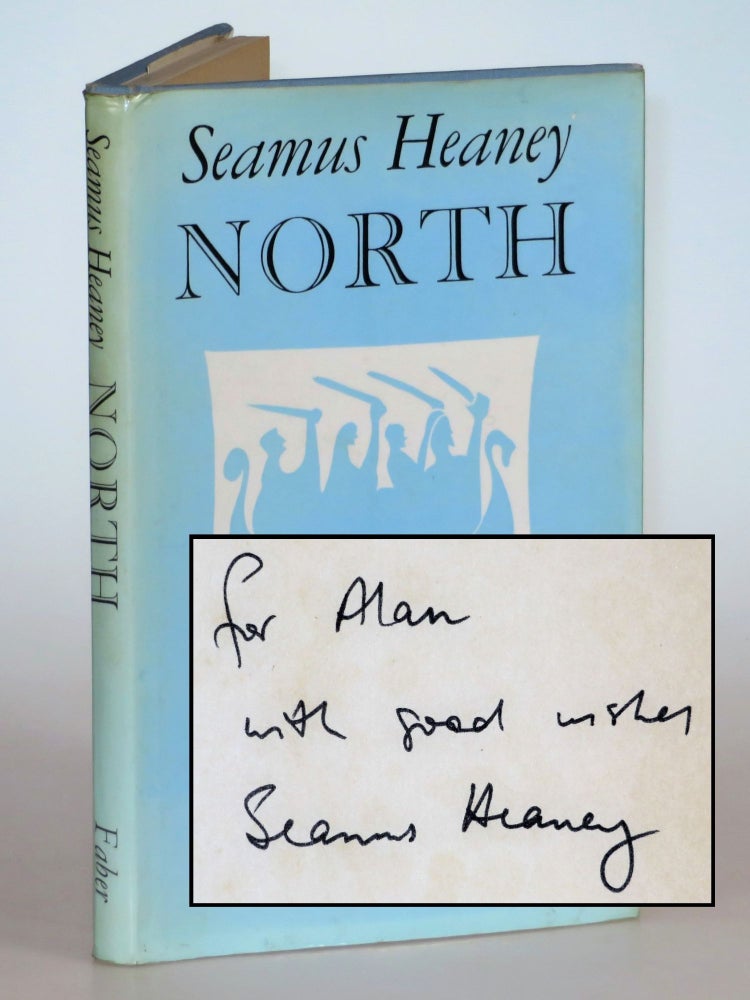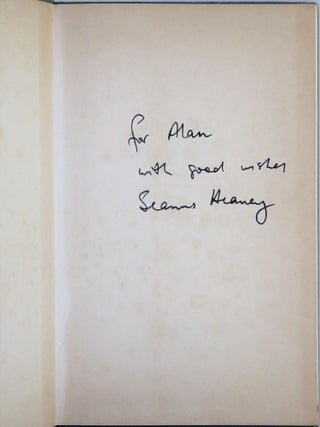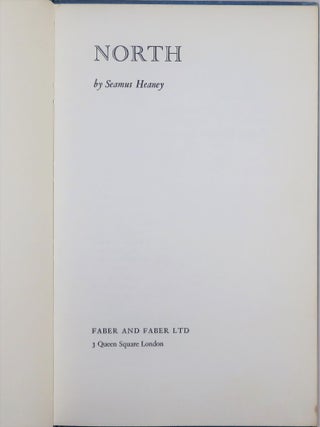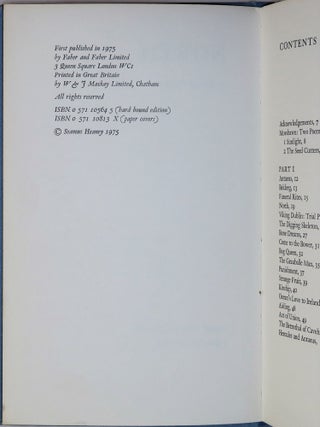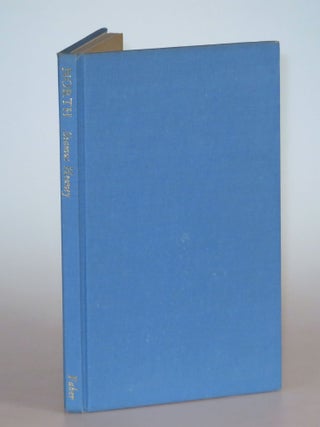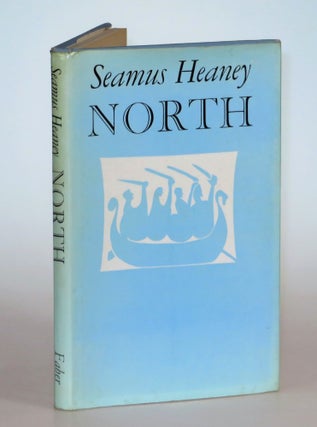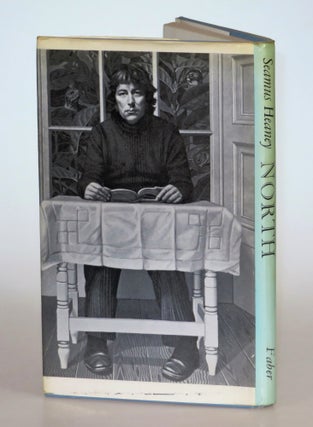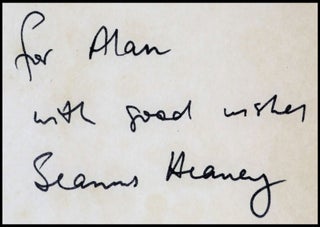North, inscribed by the author
London: Faber and Faber Ltd., 1975. First edition, first printing. Hardcover. This jacketed first edition, first printing is inscribed by Heaney in three inked lines on the front free endpaper recto: “For Alan | with good wishes | Seamus Heaney”. Condition of both volume and dust jacket is conservatively graded as very good plus. The blue cloth binding is tight and unfaded with bright spine gilt, minimal wear confined to extremities, a slight forward lean, and a hint of faint, whitish mottling to the boards. The contents remain respectably bright. The sole previous ownership mark is the author’s inscription. Differential toning to the endpapers corresponds to the dust jacket flaps and confirms that this copy has spent life jacketed. Light spotting and modest age-toning appears confined to the front pastedown and facing free endpaper and the page edges. The dust jacket is complete, unclipped with no loss or tears, with only mild toning to the fade-prone pale blue front panel and spine and light soiling and wear to extremities. The jacket is protected with a removable, archival quality clear cover.
North marks Heaney’s artistic engagement with the Troubles. The conflict in Northern Ireland spanning the last three decades of the 20th century coincided with Heaney’s most prolific years as a poet. In 1972 he moved his family to Wicklow, south of Dublin, and began to write poetry full time. He wrote while “listening to the rain in the trees and to the news of bombings closer to home”. (Nobel Lecture, 1995) Heaney became deeply concerned with the notion of a poet’s responsibilities, writing, “for years I was bowed to the desk like some monk bowed over his prie-dieu, some dutiful contemplative pivoting his understanding in an attempt to bear his portion of the weight of the world” (Nobel Lecture).
Heaney calls North “The book of mine that came most intensely out of the first shock of the Troubles…” (Interview, Stepping Stones, Dennis O’Driscoll, p.448) In part, North was prompted by Irish playwright Brian Friel’s 1975 play Volunteers, which is set on a construction site in Dublin where an archaeological dig is in progress, exposing layers of Irish history and the violence embedded therein. Heaney said: “…when I read the play, I immediately started typing out all the bog ‘Singing School’/St Columb’s poems and so on, and by the end of a weekend I found I had a manuscript that I could send to Faber as well as to Brian. That’s how North got assembled…” (Stepping Stones, p.179)
The volume is in two parts. Part I is a metaphorical excavation of Ireland’s history, mining “the stable element, the land itself, that we must look for continuity” (“The Sense of Place”, lecture, 1977). The poems of “Part II” are more “conversational and personal”. Of them, Heaney said “They were a second movement as much as they were a second section… different in pitch but… integral to the book… They come out of ‘the matter of the North’ of Ireland.” (Stepping Stones, p.179) North, Heaney said, does “What the necessary poetry always does, which is to touch the base of our sympathetic nature while taking in at the same time the unsympathetic reality of the world to which that nature is constantly exposed” (Nobel Lecture).
Seamus Justin Heaney (1939-2013) was the first of nine children born to a farmer and raised in rural County Derry “in suspension between the archaic and the modern.” At Queens University Belfast Heaney evolved into a poet. In 1965 Heaney was a member of a group of young Belfast poets known as “The Group” when his first book, Eleven Poems, was published by Queen’s Festival Publications to coincide with their 1965 festival. The 1966 publication of Death of a Naturalist brought critical acclaim. The next half century saw Heaney publish a dozen poetry collections, as well as prose, plays, and numerous translations. He was awarded the Nobel Prize in Literature in 1995 "for works of lyrical beauty and ethical depth, which exalt everyday miracles and the living past".
Reference: Brandes & Durkan A12a. Item #004712
Price: $2,600.00

